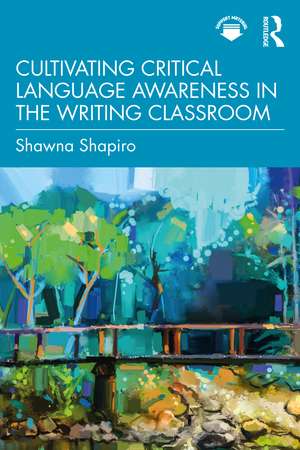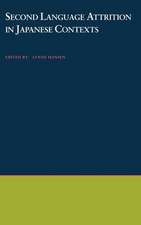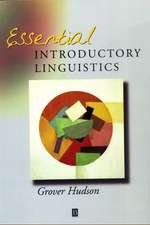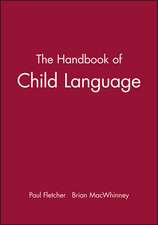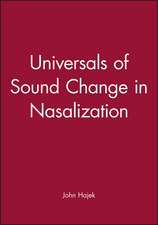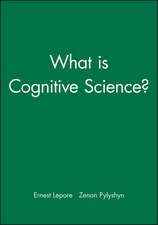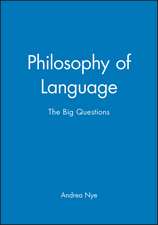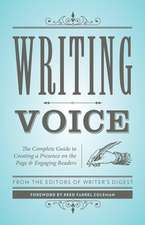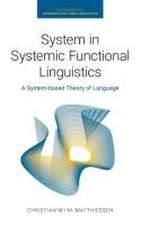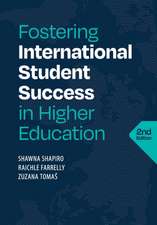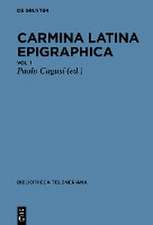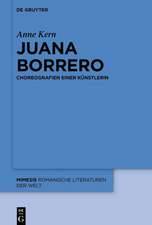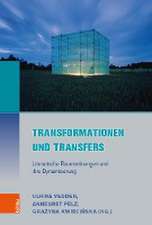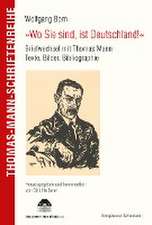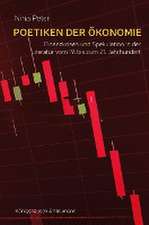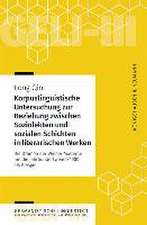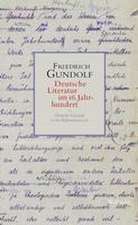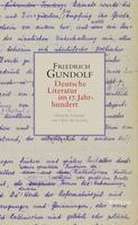Cultivating Critical Language Awareness in the Writing Classroom
Autor Shawna Shapiroen Limba Engleză Paperback – 15 feb 2022
Starting with an accessible introduction to CLA, chapters cover key topics—including World Englishes, linguistic prejudice, news media literacy, inclusive language practices, and more—in an inviting and thought-provoking way to promote reflection and analysis. Part I provides an overview of the foundations of CLA pedagogy, while Part II highlights four instructional pathways for CLA pedagogy: Sociolinguistics, Critical Academic Literacies, Media/Discourse Analysis, and Communicating Across Difference. Each pathways chapter is structured around Essential Questions and Transferrable Skills, and includes three thematic learning sequences. Part III offers tools and guidance for tailoring CLA pedagogy to the reader’s own teaching context and to students’ individual needs.
The volume’s wealth of resources and activities are a pedagogical toolkit for supporting and embracing linguistic diversity in the classroom. The cohesive framework, concrete strategies, engaging activities, and guiding questions in this volume allow readers to come away with not only a deeper understanding of CLA, but also a clear roadmap for implementing CLA pedagogy in the classroom.
Synthesizing relevant research from educational linguistics and writing studies, this book is ideal for courses in English/literacy education, college composition, L2 writing instruction, and educational linguistics.
| Toate formatele și edițiile | Preț | Express |
|---|---|---|
| Paperback (1) | 310.19 lei 3-5 săpt. | +45.60 lei 6-10 zile |
| Taylor & Francis – 15 feb 2022 | 310.19 lei 3-5 săpt. | +45.60 lei 6-10 zile |
| Hardback (1) | 1007.23 lei 6-8 săpt. | |
| Taylor & Francis – 15 feb 2022 | 1007.23 lei 6-8 săpt. |
Preț: 310.19 lei
Nou
Puncte Express: 465
Preț estimativ în valută:
59.35€ • 64.68$ • 50.02£
59.35€ • 64.68$ • 50.02£
Carte disponibilă
Livrare economică 02-16 aprilie
Livrare express 18-22 martie pentru 55.59 lei
Preluare comenzi: 021 569.72.76
Specificații
ISBN-13: 9780367767402
ISBN-10: 0367767406
Pagini: 360
Ilustrații: 8 Tables, black and white; 26 Line drawings, black and white; 18 Halftones, black and white; 44 Illustrations, black and white
Dimensiuni: 152 x 229 x 30 mm
Greutate: 1.05 kg
Ediția:1
Editura: Taylor & Francis
Colecția Routledge
Locul publicării:Oxford, United Kingdom
ISBN-10: 0367767406
Pagini: 360
Ilustrații: 8 Tables, black and white; 26 Line drawings, black and white; 18 Halftones, black and white; 44 Illustrations, black and white
Dimensiuni: 152 x 229 x 30 mm
Greutate: 1.05 kg
Ediția:1
Editura: Taylor & Francis
Colecția Routledge
Locul publicării:Oxford, United Kingdom
Public țintă
PostgraduateCuprins
Part I: Section I: Foundations of CLA Pedagogy 1. Introduction: Why Do We Need CLA Pedagogy? 2. What is CLA?: History and Concepts 3. How and Why Does CLA Pedagogy Work?: Principles and Best Practices Part II: Four Pathways for CLA Pedagogy Part II Introduction 4. The Sociolinguistics Pathway 5. The Critical Academic Literacies Pathway 6. The Media/Discourse Analysis Pathway 7. The Communicating-Across-Difference Pathway Part III: Charting Your Own Journey with CLA Pedagogy Part III Introduction 8. Tailoring CLA Pedagogy to Your Teaching Context 9. Infusing CLA into Classroom Instruction 10. Going Further with CLA
Notă biografică
Shawna Shapiro is Associate Professor of Writing and Linguistics at Middlebury College, USA.
Recenzii
"Shapiro successfully explodes the false binary between pragmatism and progressivism by reminding us that teaching writing is not an either/or proposition. And after our many years of theorizing the teaching of writing, Shapiro offers a persuasive synthesis of theory and practice that shows us how to integrate pragmatism and progressivism into our curricula and instruction. In so doing, she provides teachers with a toolkit to promote self-reflection, social justice and rhetorical agency that empowers all writing students to learn how language shapes them and how they in turn can shape language."
--Juan C. Guerra, Professor Emeritus, University of Washington at Seattle, USA
"If you are teaching student writers today—especially if you care about teaching ALL student writers today—then this a book for you. Shapiro’s deeply researched and engaging text reviews the history of critical language awareness, examines its current principles and practices, and shows just how writing teachers everywhere can employ such principles and practices to create classrooms and pedagogies where linguistic justice and equity can and will thrive."
--Andrea Lunsford, Professor Emerita, Stanford University, USA
"This book offers an outstanding roadmap for building inclusive ESOL and English language arts classrooms where students learn to be critical and agentive consumers and producers of standardized written language. The book delivers a strong conceptual framework and principles for a CLA approach combined with abundant illustrations and resources for implementing the approach. A great resource for teachers."
--Linda Harklau, Professor, University of Georgia, USA
"Shapiro’s (2022) newly published book is a great addition and response to the long-standing debate over the political and social struggle concerning what constitutes ‘correct’ standardized and conventionalized language…. All in all, [the book] is a timely contribution in today’s contentious intellectual environment where identities, linguistic oppression, and epistemological racism are present in so-called ‘democratic’ education. [It] is indeed a critical addition to the field of second language writing (L2) in general and literacy education studies, as it encourages teachers to be active agents of social transformation and justice through education. Unequivocally, Shapiro’s work adds a diverse perspective to the application of CLA with a set of epistemological, practical, and pedagogical innovations. At the same time, she cleverly allowed teacher agency to blossom as she offered possibilities for adapting some activities that tap into students’ cultural and social resources"
--Journal of English for Academic Purposes
"The book…considered to be one of the most current books in the field of L2 writing. After reading this book, I felt it was a breath of fresh air to have an opportunity to focus on critical language awareness as it has solidified my approaches to L2 writing research and the teaching of multilingual students….Shapiro’s writing style in this book is entertaining and engaging in that the author has adopted a combination of personalized and jargon free writing Shapiro’s writing style in this book is entertaining and engaging…[M]any L2 writing scholars, practitioners, and graduate students who are interested in making classrooms more inclusive will find this book extremely valuable. For L2 writing research scholars, they will find this book full of resources that they can incorporate as tasks for participants in their next research projects with multilingual and multidialectal students. For practitioners, the second section of the book will be extremely useful in helping them (re)design writing assignments and integrate inclusive practices in their classrooms….For scholars in the EFL settings, I believe the book will be valuable to generate discussions around language awareness and the status of the English language in relation to other languages in different communities. Lastly, this book is also appropriate for those who are in rhetoric and composition studies."
--Bee Chamcharatsri, Journal of Second Language Writing, Vol 58, 2022
--Juan C. Guerra, Professor Emeritus, University of Washington at Seattle, USA
"If you are teaching student writers today—especially if you care about teaching ALL student writers today—then this a book for you. Shapiro’s deeply researched and engaging text reviews the history of critical language awareness, examines its current principles and practices, and shows just how writing teachers everywhere can employ such principles and practices to create classrooms and pedagogies where linguistic justice and equity can and will thrive."
--Andrea Lunsford, Professor Emerita, Stanford University, USA
"This book offers an outstanding roadmap for building inclusive ESOL and English language arts classrooms where students learn to be critical and agentive consumers and producers of standardized written language. The book delivers a strong conceptual framework and principles for a CLA approach combined with abundant illustrations and resources for implementing the approach. A great resource for teachers."
--Linda Harklau, Professor, University of Georgia, USA
"Shapiro’s (2022) newly published book is a great addition and response to the long-standing debate over the political and social struggle concerning what constitutes ‘correct’ standardized and conventionalized language…. All in all, [the book] is a timely contribution in today’s contentious intellectual environment where identities, linguistic oppression, and epistemological racism are present in so-called ‘democratic’ education. [It] is indeed a critical addition to the field of second language writing (L2) in general and literacy education studies, as it encourages teachers to be active agents of social transformation and justice through education. Unequivocally, Shapiro’s work adds a diverse perspective to the application of CLA with a set of epistemological, practical, and pedagogical innovations. At the same time, she cleverly allowed teacher agency to blossom as she offered possibilities for adapting some activities that tap into students’ cultural and social resources"
--Journal of English for Academic Purposes
"The book…considered to be one of the most current books in the field of L2 writing. After reading this book, I felt it was a breath of fresh air to have an opportunity to focus on critical language awareness as it has solidified my approaches to L2 writing research and the teaching of multilingual students….Shapiro’s writing style in this book is entertaining and engaging in that the author has adopted a combination of personalized and jargon free writing Shapiro’s writing style in this book is entertaining and engaging…[M]any L2 writing scholars, practitioners, and graduate students who are interested in making classrooms more inclusive will find this book extremely valuable. For L2 writing research scholars, they will find this book full of resources that they can incorporate as tasks for participants in their next research projects with multilingual and multidialectal students. For practitioners, the second section of the book will be extremely useful in helping them (re)design writing assignments and integrate inclusive practices in their classrooms….For scholars in the EFL settings, I believe the book will be valuable to generate discussions around language awareness and the status of the English language in relation to other languages in different communities. Lastly, this book is also appropriate for those who are in rhetoric and composition studies."
--Bee Chamcharatsri, Journal of Second Language Writing, Vol 58, 2022
Descriere
This book introduces Critical Language Awareness (CLA) Pedagogy as a robust and research-grounded framework to engage and support students in critical examinations of language, identity, privilege and power.
